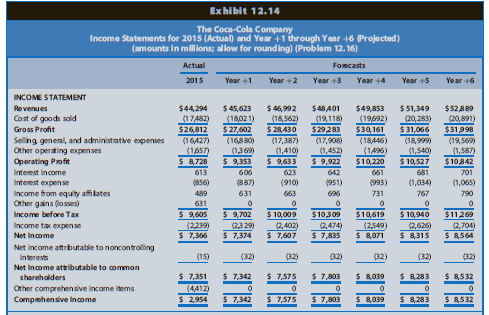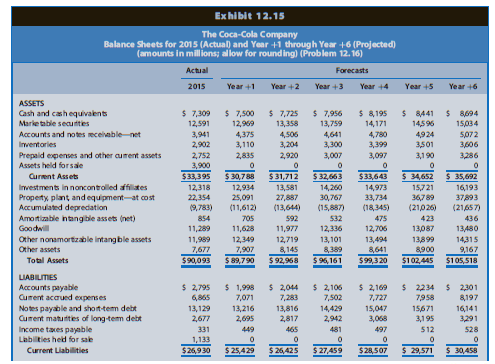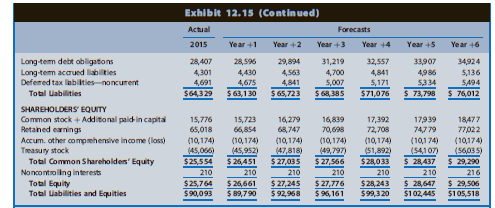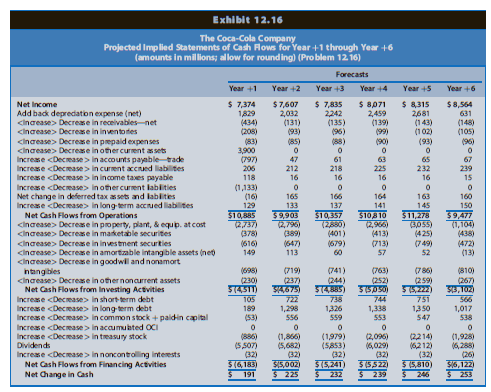In this chapter, we evaluated shares of common equity in Starbucks using the value-to-book approach, market multiples,
Question:
In this chapter, we evaluated shares of common equity in Starbucks using the value-to-book approach, market multiples, and reverse engineering. The Coca-Cola Company competes directly with Starbucks. The data in Chapter 12, Exhibits 12.14 through 12.16, include the actual amounts for 2015 and projected amounts for Year +1 to Year +6 for the income statements, balance sheets, and statements of cash flows for Coca-Cola. In Problem 14.21, you evaluated shares of common equity in Coca-Cola using the value-to-book approach, market multiples, and reverse engineering.



 REQUIREDa. Prepare an exhibit using the data and analyses for Starbucks from this chapter and the data and analyses for Coca-Cola from the previous problem that will allow you to compare these two competitors on the following dimensions:1. Cost of equity capital (RE)2. ROCE for 20153. Projected ROCE for Year +14. Book value of common shareholders' equity5. Market value of common shareholders' equity
REQUIREDa. Prepare an exhibit using the data and analyses for Starbucks from this chapter and the data and analyses for Coca-Cola from the previous problem that will allow you to compare these two competitors on the following dimensions:1. Cost of equity capital (RE)2. ROCE for 20153. Projected ROCE for Year +14. Book value of common shareholders' equity5. Market value of common shareholders' equity
6. Intrinsic value of common shareholders' equity7. Value-to-book ratio8. Market-to-book ratio9. Value-earnings ratio (using Year +1 projected comprehensive income)10. Price-earnings ratio (using Year +1 projected comprehensive income)11. Value-earnings ratio (using 2015 reported earnings per share)?
12. Price-earnings ratio (using 2015 reported earnings per share)?
13. Reverse engineer share price to solve for implied expected rate of return (assuming 3% long-run growth)?
14. Reverse engineer share price to solve for implied long-run growth (assuming the cost of equity capital as the discount rate)b. What inferences can you draw from these comparisons about the valuation of Starbucks versus Coca-Cola? In the chapter, we concluded that Starbucks shares were under priced by roughly 16% in the market at the end of 2015. In the previous problem, you determined whether Coca-Cola was under- or overpriced. Are the comparisons here consistent with your previous conclusions regarding both Starbucks and Coca-Cola shares at the end of 2015? Explain.
Cost Of EquityThe cost of equity is the return a company requires to decide if an investment meets capital return requirements. Firms often use it as a capital budgeting threshold for the required rate of return. A firm's cost of equity represents the...
Step by Step Answer:

Financial Reporting Financial Statement Analysis and Valuation a strategic perspective
ISBN: 978-1337614689
9th edition
Authors: James M. Wahlen, Stephen P. Baginski, Mark Bradshaw





